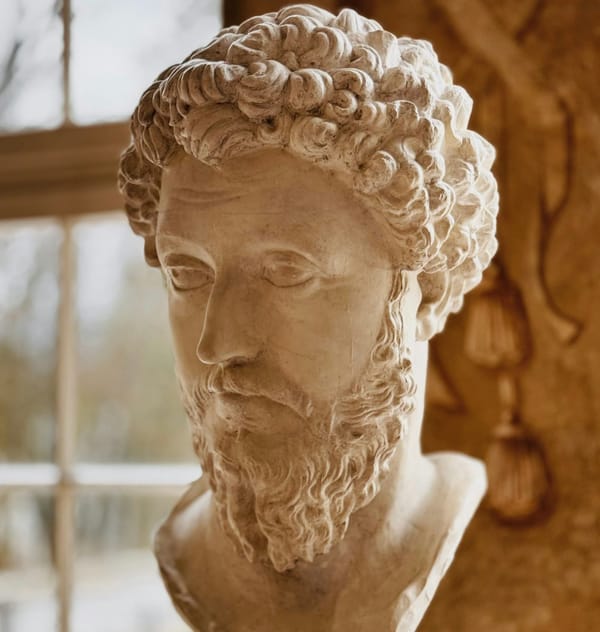Self-help books are flawed

Test
teaser
Hey all, Florian here.
Here is some new perspective on the types of books I have been reading up until recently.
Enjoy!:)
Self-help books are flawed
The more I read fiction, the more I get mad at my girlfriend.
I hate to admit she's right; was right from the beginning and had a point complaining about not getting the props she deserved all along.
Not long ago, we signed an agreement on my weekly reading goal of reading at least 50 pages from a novel, romance, or other fictional book. If I didn't hit this quota, 5€ would travel out of my pocket straight into her lunch money box.
The reason for this was her concern about the spectrum of literature that I considered worth reading. Up until recently, I read solely to get information and advice on some topics. If it was not for getting from A to B what's the point? I thought.
On the other hand, she reads to dive into the emotional world of a protagonist struggling with the intricacies of life. In her opinion, there is more to learn from story than could ever taught in instructions.
So, if we were to send favourites to a game, Greg McKeown's "Essentialism" would run against "Talking at Night" by Claire Daverley, "4000 weeks" by Oliver Burkeman takes on Benedict Wels' "Hard Land" and the "seven habits of highly effective people" share the last place on the podium with "What you ca see from here."
After a discussion on why this mentality may lack perspective, it became clear to me that she deeply cared about myself being too deep into this bubble. I saw her point and promised to read more novels.
Done deal. And so, the struggling character became sort of the antidote to the seven-step plan to succeed in life.
What can I say?
You've done it!
The perspective of an individual battling to navigate the intricacies of life definitely helped me getting
a more realistic perspective on life that provides contrast to the linear action-plans and advices that you often read in self-help books.
Neither is good or bad. But when in doubt, it may be useful to seek realistic advice. And more often than not, I found the shoes of a struggeling hero a perfect place to start.
⭐️ Main takeaways for the week
-
Self-help literature only portrays part of the story that life has to offer.
-
Why self-help literature can induce dependency.
-
How studying struggling characters provides a better way to help you in life.
🔍 Why self-help-literature is flawed
Literature from the self-help bookshelf promises its readers to move them closer to the fruits of life: fortune, health and riches. These books build on the idea that you can control your life and improve your situation by focusing on yourself.
Many philosophers express scepticism about this sort of literature, which has its roots in authenticity and the vision that life is about becoming the best version of oneself. However, if people are unsure of their identity, they may become dependent on all sorts of self-help guides.
It is in the nature of the genre to place the individual at the heart and center of the picture. It makes sense: In order sell advice and action step plans the focus must be on the individual. He or she must be in charge of his or her fortune and be able to improve independent slef.
This view isolates the individual from the world around him: History, nature, society and all the changes that arise from such external circumstances. This imposes dependency. If we start to deny the significance of external circumstances, we can only define ourselves from within ourselves
If we start to remove the significance of external circumstances from life's equation, there is nothing left but to define ourselves from within.
This is trivial at best failure to understand the essential things in life at worst. It's an uncleaned lens that only shows half of the picture that we call life.
Fiction, in contrast, presents life more truthfully and in the full spectrum. In telling the story of a character shipping struggling with the curveballs that life throws, they illustrate how little control you actually have over your life, and they can show how strongly your life is interwoven with social, cultural or historical processes.
The individual is subject to its environment. Therefore, it may be questioned, for example, the individual is made responsible for his fate and has to look for individual solutions to problems when, in reality, the situation is more complex and cannot be solved by easy solutions which are not to be found on a personal level.
If you praise the self-realizing individual on the one hand but, on the other, induce the development of beings dependent on self-help, you produce a paradox.
Novels provide a better narrative of learning how to accept and deal with the intricacies of life.
The genre portrays a person's experiences with the world and revolves around how this person organizes the (novel) world in relation to his own perspective. It teaches the reader to understand the world from a subjective perspective, the "I" perspective. Focusing on the individual, the novel is in no way inferior to self-help literature in terms of scope. Yet, arguably, it is better able to deliver what it means to be human and what life is all about.
💭 Closing thoughts
I believe everybody can, and should, take their fate into their own hands.
Yet it's tempting to think we can control anything while some things simply are beyond our control.
This idea puts strain on us because what happens when life doesn't turn out as expected?
It fuels anxiety, produces vulnerability and makes us want to escape seeking more advice and dependent on self-help.
But self-help books ultimately leave us feeling that we can't achieve the goals they promise, such as happiness, wealth, and well-being. They only show part of the picture—the better face, I might argue.
Novels, on the other hand, allow us better to grasp the complexity and uncontrollability of human life, exposing the full spectrum and painting a more realistic picture.
The struggling character provides an antidote to the idealistic and often simplified linear path to happiness. There is nothing wrong with self-help books, but we should keep this in mind and be aware of their shortcomings in explaining life.
What do you think? I appreciate your thoughts on this.
Happy sunday everyone!
Best,
Florian





